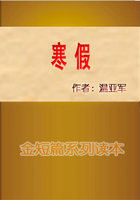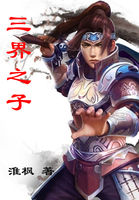party in the West-end of London. And after the ladies had left the table the conversation of the gentlemen took a turn such that it could not have taken as long as the ladies were present. Peel took no share in the stories or the merriment that went on, and, at last, he rose up and ordered his carriage, and, with a burning face, left the room. When he was challenged as to why he had broken up the pleasant party so soon, he could only reply that his conscience would not let him stay any longer. No doubt Peel felt the mocking laughter that he left behind him, but, as Shame said to Faithful, the tenderness of the young statesman's conscience compelled him to do as he did. But we are not all Peels. And there are plenty of workshops and offices and dinner-tables in our own city, where young men who would walk up to the cannon's mouth without flinching have not had Peel's courage to protest against indecency or to confess that they belonged to an evangelical church. If a church is only sufficiently unevangelical there is no trial of conscience or of courage in confessing that you belong to it. But as Shame so ably and honestly said, that type of religion that creates a tender conscience in its followers, and sets them to watch their words and their ways, and makes them tie themselves up from all hectoring liberty--to choose that religion, and to cleave to it to the end, will make a young man the ridicule still of all the brave spirits round about him. Ambitious young men get promotion and reward every day among us for desertions and apostasies in religion, for which, if they had been guilty of the like in war, they would have been shot. 'And so you are a Free Churchman, I am told.' That was all that was said. But the sharp youth understood without any more words, and he made his choice accordingly; till it is becoming a positive surprise to find the rising members of certain professions in certain churches. The Quakers have a proverb in England that a family carriage never drives for two generations past the parish church door. Of which state of matters Shame showed himself a shrewd prophet two hundred years ago when he said that but few of the rich and the mighty and the wise remained long of Faithful's Puritan opinion unless they were first persuaded to be fools, and to be of a voluntary fondness to venture the loss of all.
And I will tell you two other things, said sharp-sighted and plain-
spoken Shame, that your present religion will compel you to do if you adhere to it. It will compel you from time to time to ask your neighbour's forgiveness even for petty faults, and it will insist with you that you make restitution when you have done the weak and the friendless any hurt or any wrong. And every manly mind will tell you that life is not worth having on such humbling terms as those are. Whatever may be thought about Shame in other respects, it cannot be denied that he had a sharp eye for the facts of life, and a shrewd tongue in setting those facts forth. He has hit the blot exactly in the matter of our first duty to our neighbour; he has put his finger on one of the matters where so many of us, through a false shame, come short. It costs us a tremendous struggle with our pride to go to our neighbour and to ask his forgiveness for a fault, petty fault or other. Did you ever do it?
When did you do it last, to whom, and for what? One Sabbath morning, now many years ago, I had occasion to urge this elementary evangelical duty on my people here, and I did it as plainly as I
could. Next day one of my young men, who is now a devoted and honoured elder, came to me and told me that he had done that morning what his conscience yesterday told him in the church to do.
He had gone to a neighbour's place of business, had asked for an interview, and had begged his neighbour's pardon. I am sure neither of those two men have forgotten that moment, and the thought of it has often since nerved me to speak plainly about some of their most unwelcome duties to my people. Shame, no doubt, pulled back my noble friend's hand when it was on the office bell, but, like Faithful in the text, he shook him out of his company and went in. I spoke of the remarkable justice of the newspaper press in the opening of these remarks. And it so happens that, as I lay down my pen to rest my hand after writing this sentence and lift a London evening paper, I read this editorial note, set within the well-known brackets at the end of an indignant and expostulatory letter: ['Our correspondent's complaint is just. The paragraph imputing bad motives should not have been admitted.'] I have no doubt that editor felt some shame as he handed that apologetic note to the printer. But not to speak of any other recognition and recompense, he has the recompense of the recognition of all honourable-minded men who have read that honourable admission and apology.
Shame was quite right in his scoff about restitution also. For restitution rings like a trumpet tone through the whole of the law of Moses, and then the New Testament republishes that law if only in the exquisite story of Zaccheus. And, indeed, take it altogether, I do not know where to find in the same space a finer vindication of Puritan pulpit ethics than just in this taunting and terrifying attack on Faithful. There is no better test of true religion both as it is preached and practised than just to ask for and to grant forgiveness, and to offer and accept restitution.
Now, does your public and private life defend and adorn your minister's pulpit in these two so practical matters? Could your minister point to you as a proof of the ethics of evangelical teaching? Can any one in this city speak up in defence of your church and thus protest: 'Say what you like about that church and its ministers, all I can say is, that its members know how to make an apology; as, also, how to pay back with interest what they at one time damaged or defrauded'? Can any old creditor's widow or orphan stand up for our doctrine and defend our discipline pointing to you? If you go on to be a Puritan, said Shame to Faithful, you will have to ask your neighbour's forgiveness even for petty faults, and you will have to make restitution with usury where you have taken anything from any one, and how will you like that?
And what did you say to all this, my brother? Say? I could not tell what to say at the first. I felt my blood coming up into my face at some of the things that Shame said and threatened. But, at last, I began to consider that that which is highly esteemed among men is often had in abomination with God. And I said to myself again, Shame tells me what men do and what men think, but he has told me nothing about what He thinks with Whom I shall soon have alone to do. Therefore, thought I, what God thinks and says is wisest and best, let all the men of the world say what they will.
Let all false shame, then, depart from my heart, for how else shall I look upon my Lord, and how shall He look upon me at His coming?















